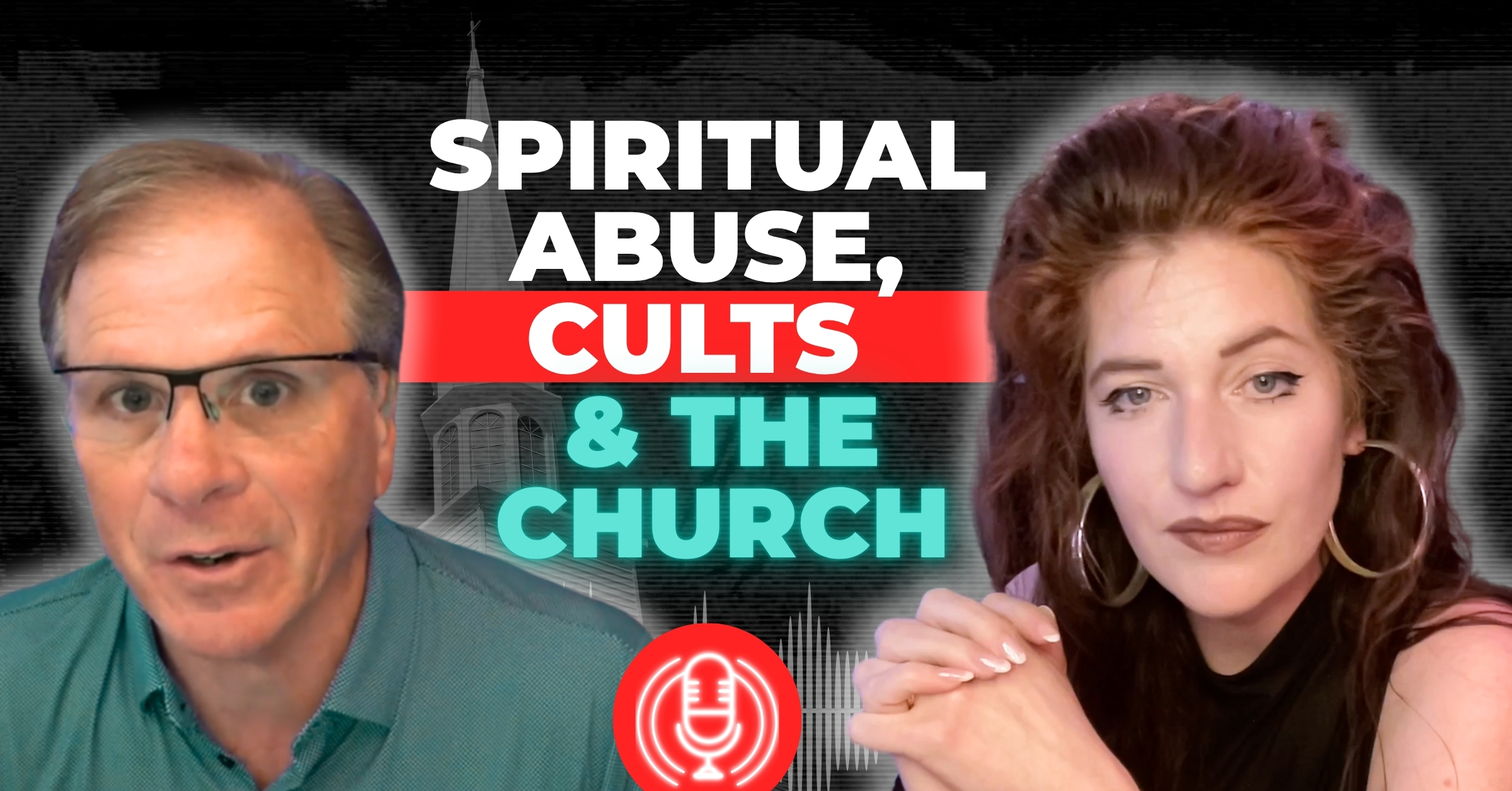The following question comes from one our Crossexamined Community members.
“Why did God allow the Bible to be written in a way that gives Christians an opportunity to misunderstand it?” – Vinnie B.
This question intrigues me because it’s a universal problem. Every human being who’s ever tried to dig into Scripture has found it difficult at times to understand what God is saying. And some passages are so difficult that theologians across Church history can’t agree on what they mean.
Of course we could all benefit from learning how to interpret the Bible correctly. Sometimes we struggle over a passage and it would easy to understand if we just knew a few basic principles for interpretation. But, even if you go to seminary, and you have years of practice interpreting and studying God’s word, if that’s you, then you know that there are still some passages that baffle you. No amount of classes and seminary courses will be enough. God’s word can still be difficult.
Moreover, this interpretive problem points to a theological problem. If God’s word is so easy to misinterpret and so hard to understand, then what does that say about God? Is God just playing games with us? Is this some big game of “keep-away” and He’s eluding us, refusing to let us understand what He’s saying? That sounds like a capricious, mischievous God. Not a good look.
Not ALL the Bible is Hard to Understand
First, we should note that a lot of the Bible is straightforward, fairly easy to understand, and there’s no real challenge in figuring out how to rightly apply it. That’s important to remember, so we have a sense of balance between the easy and hard parts of the Bible. Jesus was able to translate the Gospel message so that an uneducated foreign woman – the woman at the well – was able to understand exactly what He meant (John 4). God can, and does, communicate in ways that anyone, with ears to hear, can understand Him.
But one chapter earlier, Jesus was confusing the well-educated Pharisee, Nicodemus (John 3). Pharisees were some of the most educated and biblically literate scholars in their day. To this day, we don’t know if Nicodemus ever grasped what Jesus meant by being “born again.” Sometimes, God communicates in ways that challenge and confound the most educated among us. Other times, God speaks clearly, His words cutting like a knife so that everyone understands what He’s saying.
Sometimes We’re the Problem
We also should admit that often the problem isn’t in the Bible. It can be straightforward, easy-to-understand, yet if we don’t like what God is saying to us, we might play dumb, thinking that we aren’t responsible to follow directions that we don’t understand. But, playing dumb is a dangerous game. If you keep acting dumb, eventually you won’t acting. We’ll just be dumb. I call this “sin-stupid.” When people suppress God’s truth long enough, their conscience is seared (1 Timothy 4:2), their hearts become hard (Romans 2:5), their spiritual discernment numbed, till they can’t understand things that used to be obvious. Repeated unrepentant sin makes people stupid over time.
Or perhaps we aren’t rebelling against God, or suppressing His word. We might just be a little lazy, or distracted, and we aren’t paying close attention to see what God is saying to us. If God’s word were on billboard, we’d at least need to stop speeding, stop multitasking, and slow down enough to read what He’s telling us. God’s word might be easy enough to understand, but if we’re just sprinting past, paying little attention, then we’re liable to misinterpret Him. That’s not God’s fault. That’s ours .
God Has Other Purposes Besides Clarity
At the heart of this question is the assumption that God wants to be understood. And, yes, God relates with mankind in ways that invite us to know Him more, understanding who He is, how He works, and what He wants. But we cannot assume that God’s only purpose in communication is clarity.
Sometimes God speaks in riddles, or indirectly, or in downright incomprehensible ways. If God was aiming primarily at being clear, then He’s failed. But, we have no good reason to think that clarity is the God’s one and only aim here. Indeed, we have reason to believe he’s trying to murky and confusing to some people.
1. God Is Sorting Out the Followers from the Fans
Jesus famously explained his use of parables saying that they were not just to clarify kingdom principles among believers but also to confound non-believers (Matt 13:10-17).
“The disciples came to him and asked, ‘Why do you speak to the people in parables?’ 11He replied, ‘Because the knowledge of the secrets of the kingdom of heaven has been given to you, but not to them. 12Whoever has will be given more, and they will have an abundance. Whoever does not have, even what they have will be taken from them. 13 This is why I speak to them in parables: ‘Though seeing, they do not see; though hearing, they do not hear or understand.’” (Matthew 13:10-13; NIV)
Scripture has some passages for easy-reading and some for difficult-reading. And this is an intentional sifting method to bless those believers who have “ears to hear” without rewarding non-believers with kingdom insights that aren’t fit for them.
2. God is Beautiful, Not Basic
Another one reason for these difficult passages is that God isn’t a “bread-and-water” God. He’s not basic. He could have made a world without tastes, and colors, and smells, and experiences. But He included all that stuff because He’s an artist, an aesthete. Likewise, God’s word isn’t reducible simply to information, any more than food is reducible entirely to fuel. It’s designed for an an aesthetic interaction. It’s a beauty to be enjoyed. It’s an encountered to be experienced. Just as food is more than calories, so God’s word is more than information. It has flavor, and texture, and ambience so that there’s more to imbibe raw information. If Scripture were just about information transfer, then we could hurry through it – get the info and leave. But Scripture is to be experienced, and that means ruminating on it sometimes. Let the flavors simmer a bit.
3. God Promotes Wisdom
Sometimes the difficulty we face in God’s word is a matter of wisdom. By that I mean, there’s supposed to be a bit of a wrestling match with the language and ideas in Scripture, a struggle to pry wisdom from those obtuse words. The struggle is part of the path to wisdom. Without the struggle one might gain some head-knowledge, but they’re liable to miss the deeper application of wisdom. Plus, as Jesus explained, not everyone will understand the hard-language sometimes. So, the challenging parts of the Bible can be a filtering mechanism that way, separating the wise and foolish, the sheep from the goats.
4. God Promotes Personal Growth
Besides wisdom, and aesthetics, there’s also personal growth to be found as we struggle through God’s word. If everything was laid out for us easy-peasy, then we might never face the kind of resistance-training needed to get strong, so we’d never grow strong enough to live out the tasks God has for us.
In sum, there is more to God’s purposes than just being clearly understood. Sometimes God speaks in ways that keep his Kingdom truths out-of-reach, out of the “wrong hands” so to speak. For disciples, the difficult passages in Scripture slow us down so we can relish experiencing God’s word, chewing and savoring what He’s saying. The same passages can also lend a sense of mystery, so that in searching for the answers we can find wisdom along the way. And they can present obstacles for us to press into, and struggle over it. There we can gain strength and grow through the experience.
Yes, we can still learn what God has said through Scripture. But beyond mere head knowledge, God imparts character, wisdom, and beauty through His written word.
Thanks for the great question, Vinnie B.
If you want to find out more about our Crossexamined Community you can sign up here for your own free trial.
Recommended resources related to the topic:
Counter Culture Christian: Is the Bible True? by Frank Turek (Mp3), (Mp4), and (DVD)
The New Testament: Too Embarrassing to Be False by Frank Turek (DVD, Mp3, and Mp4)
Why We Know the New Testament Writers Told the Truth by Frank Turek (DVD, Mp3 and Mp4)
Oh, Why Didn’t I Say That? Is the Bible Historically Reliable? by Dr. Frank Turek DVD, Mp4, Mp3 Download.
How to Interpret Your Bible by Dr. Frank Turek DVD Complete Series, INSTRUCTOR Study Guide, and STUDENT Study Guide
How Philosophy Can Help Your Theology by Richard Howe (MP3 Set), (mp4 Download Set), and (DVD Set)
Dr. John D. Ferrer is an educator, writer, and graduate of CrossExamined Instructors Academy. Having earned degrees from Southern Evangelical Seminary and Southwestern Baptist Theological Seminary, he’s now active in the pro-life community and in his home church in Pella Iowa. When he’s not helping his wife Hillary Ferrer with her ministry Mama Bear Apologetics, you can usually find John writing, researching, and teaching cultural apologetics.









